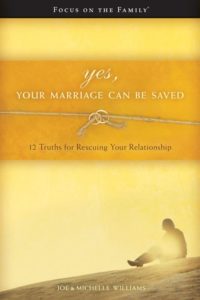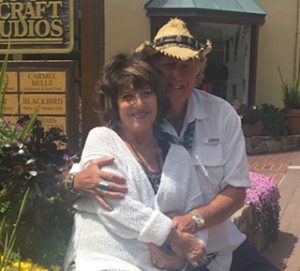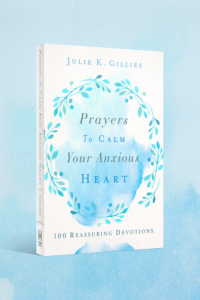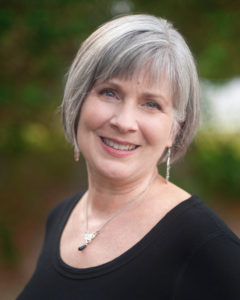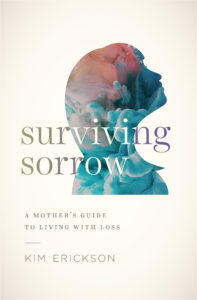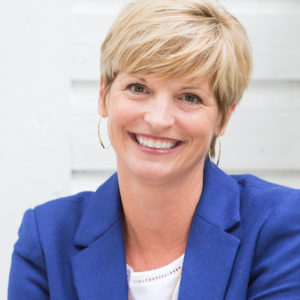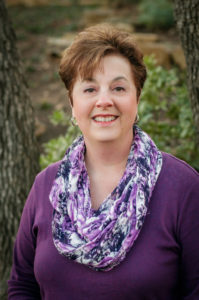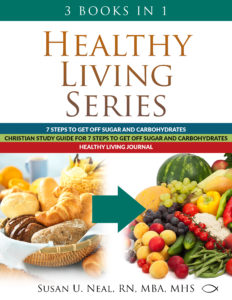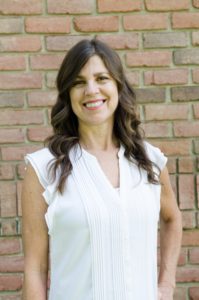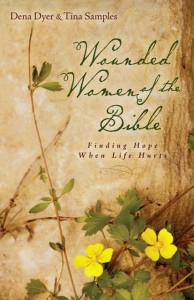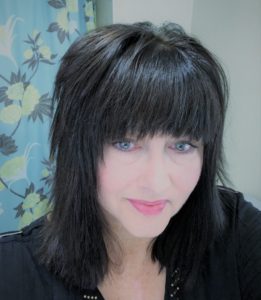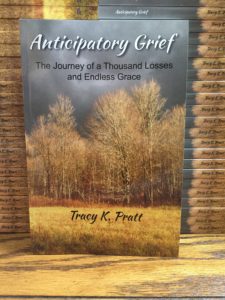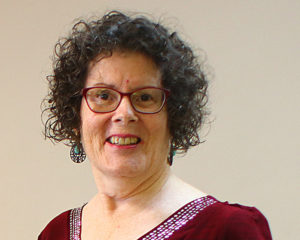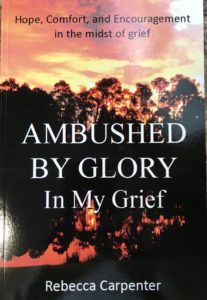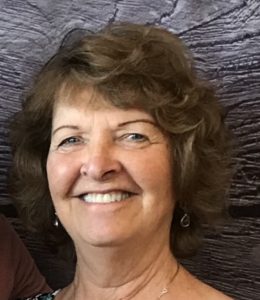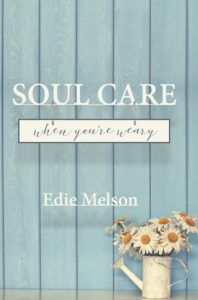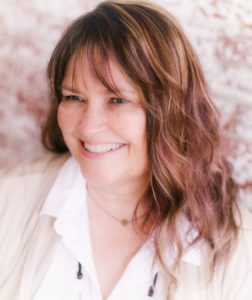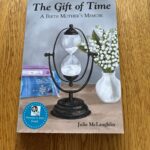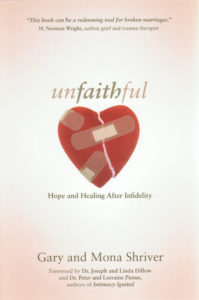 WHEN INFIDELITY INVADES the sacred protection of marriage, shock waves strike at the very foundation of the relationship. The revelation brings unbelievable pain, and many marriages don’t survive. But they can. There is hope. According to Mona and Gary Shriver, authors of Unfaithful: Hope & Healing after Infidelity, a marriage can heal from the trauma of infidelity and eventually thrive once again.
WHEN INFIDELITY INVADES the sacred protection of marriage, shock waves strike at the very foundation of the relationship. The revelation brings unbelievable pain, and many marriages don’t survive. But they can. There is hope. According to Mona and Gary Shriver, authors of Unfaithful: Hope & Healing after Infidelity, a marriage can heal from the trauma of infidelity and eventually thrive once again.
For them, this isn’t just a theory. It’s personal. They have lived both the devastation and the recovery. And Mona is here to share from her heart what she learned from this experience and what she can now pass onto others about the hope and healing that is possible. Their story and their book, Unfaithful, is one I regularly recommend to those in our classes, and I am so pleased to be able to introduce her to you today.
Linda: Mona, I know your book, Unfaithful: Hope & Healing after Infidelity, is based on your personal story, and that you and your husband went through adultery in your own marriage. What led you to share such a deeply personal journey?
Mona: I was absolutely blind sighted by Gary’s admission of being unfaithful. I never, ever thought this could happen to us. Never thought Gary would be capable of such a thing.
Gary and I had been married twenty years. Happily, I thought. We had three active boys between the ages of seven and fourteen. Life was busy. We were Christians. We were best friends. The revelation of his adultery made me question everything I thought I knew, including myself. Gary wanted to save our marriage and I knew that was in line with God’s word. But frankly, I didn’t believe for one minute that we could heal. I knew our marriage was over, but I also knew I had to “try” so that when we did divorce, I could say we tried.
What I learned, what we learned, during that process was the reason we wrote Unfaithful. I learned that you can rebuild, or even build anew, a marriage with love, trust, intimacy and respect after infidelity. What we call a healthy marriage. It can be done. God can do it if you’ll both follow Him in the rebuilding. It was the hardest thing either of us has ever done but we are so glad we did.
Most people don’t believe that. That’s because all we normally see are marriages that didn’t heal. We had been told couples healed but when I asked to speak with someone who had done it, no one could be found. Later our counselor asked us to be that couple for someone else.
That’s how Hope & Healing Ministries began. The four of us met for a while, then began working alongside couples in our support groups. As we watched what God was doing for these marriages, the book just had to be written so others could hear the same words of hope.
Linda: You said marriages can heal from infidelity. People can heal. Tell my readers how that can actually happen. What does it take?
Mona: We tell couples only two things are required to start the healing process. First is a willingness to try. Both of you willing to work together to try and heal. This doesn’t mean you really believe you can do it. I didn’t. You may not know how you feel about the person you’re married to right now. Very understandable. It just means you’ll try.
That meant I would first commit to God. Sitting at God’s feet, seeking His guidance, being willing to do things His way.
The bottom line was that it wasn’t about what I had done or hadn’t done—blame. It wasn’t about trying to control my spouse or making sure our efforts were “even.” It wasn’t about making anybody happy. And it wasn’t about single handedly saving a marriage or manipulating healing. It was about being the person God created me to be whether I remained married or became single. It was about doing my part and not settling for anything less than real healing.
The second requirement is transparent honesty. Answering questions honestly. Expressing what you think and feel as best you can with as much kindness and respect as possible. This is not the time to acquiesce without input. Honesty sets the foundation for healing, and without it, the work you think you’ve done will crumble when the dishonesty is exposed. And everything counts right now. This is hard stuff, and sometimes you have the opportunity to apologize for how you communicated a truth. But as you continue to work together, you can learn how to better communicate. This is where support and a good Christian counselor can help you with new and better tools. We sure didn’t know what to do or how to do it. Some of us need to speak up more. Some of us need to be quiet more. Both of us need to listen. And treat each other with respect, not because they “deserve it” but because God asked us to treat all people with respect.
crumble when the dishonesty is exposed. And everything counts right now. This is hard stuff, and sometimes you have the opportunity to apologize for how you communicated a truth. But as you continue to work together, you can learn how to better communicate. This is where support and a good Christian counselor can help you with new and better tools. We sure didn’t know what to do or how to do it. Some of us need to speak up more. Some of us need to be quiet more. Both of us need to listen. And treat each other with respect, not because they “deserve it” but because God asked us to treat all people with respect.
Linda: Someone might say, “I’m not sure I want to save this marriage.” Now what?
Mona: The revelation of adultery is comparable to the sudden death of someone you love. It is a trauma and it is that big. It overwhelms your ability to adapt. There are physiological changes in your brain that effect how you process information. You’re a mess—emotionally, physically, and spiritually. That means this is not the best time to make major life changing decisions.
So what do you do? Focus on healing. Even if you separate, the healing is still the focus. There is a wound and it’s huge. It needs to heal. And if your spouse is willing to work through that healing process with you, then that can make your healing a bit easier.
If you have children, this person will continue to be a part of your life whether or not the marriage heals. Your children have two parents and no amount of anger or bitterness will change that. In fact, those most hurt by unhealed wounds are the children. So go ahead and invest the time and effort towards healing. Your kids are worth it.
You can focus on healing because you really have nothing more to lose. Your life is already in chaos. The truth is that the quickest way out of this pain and to feeling good about life again is to heal. There is a third choice beside giving up (divorce) and giving in (staying in a miserable relationship) and that is to heal. As the healing progresses you will be better prepared to consider those life changing decisions.
Linda: How long does it take to heal from infidelity?
Mona: The truly honest answer is that it takes as long as it takes. It takes until both of you agree the healing is complete.
So what does a healed marriage look like? How do you know when it’s done? As you work through the process, gain some understanding, grieve that which was lost, and resurrect that which is necessary, the acute pain goes away. You will never forget—that is impossible. But it will not dominate your thoughts or control your life like it does in the beginning. It will become a sad memory. But we all live with sad memories in our lives—that doesn’t mean we quit living.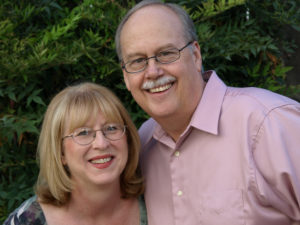
Healing is complete when both of you feel you can approach your spouse with anything. Now that doesn’t mean all your talks are fun—we are still human beings after all. The point is to listen to each other and treat each other with respect and kindness even if we don’t agree so we can reach decisions with which we can both live.
The realization that we were fully healed came in retrospect. It happened so slowly I missed the moment. That was okay.
Linda: What else can help couples heal from adultery?
Mona: Educate yourself on this process of healing. Unfortunately, not all therapists and pastors agree on the best way to heal from adultery. That can not only be confusing it can make it more difficult. We have several recommendations on our website at Hope & Healing Ministries. hopeandhealingministries.us
We also have a free resource available that might be a good place to start. The Crisis Support Booklet offers ten foundational truths in bite-sized pieces about adultery recovery with encouragement from others who have walked this path. Go to the website, click “Couples Support”, click “Infidelity Recovery” and scroll down to “Crisis Support Booklet.” Each person will benefit from having their own copy.
Linda: Is there anything else you’d like to share with our readers?
Mona: There is so much more I wish I could share. So many have questions on forgiveness, trust and so much more. Unfortunately not all can be addressed here. But you can find answers that will aid your journey to healing.
Oswald Chambers says this. “It is not true to say that God wants to teach us something in our trials. Through every cloud He brings our way, He wants us to unlearn something”. I found this so true in the journey of our healing. I had some “unlearning” to do.
This healing journey is not easy but it is so worth it. Gary nor I are the same people we were before we went through the healing process to rebuild our marriage. And quite frankly, we’re glad. We like ourselves and each other a whole lot more.
You don’t have to go through this alone. There are resources out there to help you. We encourage you to seek and access the resources you need. May the Lord give you the wisdom and the strength to complete the journey.
Linda: Speaking of resources, how can your book Unfaithful help couples who decide they want to try to work through the healing after infidelity takes place in their marriage?
Mona: Our book, Unfaithful: Hope and Healing after Infidelity is written from the perspective of a couple who has been through adultery recovery. By switching back and forth between the perspective of the betrayer and the one betrayed, the book helps couples better understand each other’s experience as they move through the process of healing.
This book conveys some common elements of the healing process along with Biblical principles to help guide readers through recovery. There is also a section on emotional affairs. When the book was revised we were able to add a lot of what we’d learned from the experts and from the hundreds of couples we’ve been privileged to walk alongside. And at the end of each chapter we’ve included discussion questions that can be a great way to begin addressing the issues couples face as they work through their recovery.
Linda: I know in the past you’ve also had marriage intensives for couples after infidelity. Please tell us about them and what you’re doing currently.
Mona: We will always talk with and support couples as long as we’re breathing so we’re not quitting ministry, but we are making changes to the method in which we deliver it. We did Weekend Intensives from 2010 through 2019 and had basically decided to cease offering those when COVID hit. So we’re spending this time making videos of what we consider to be our most important sessions from those weekends. They are filmed and currently being edited so should be available within a few months. Gary just happens to be a professional audio video engineer so he’s just beginning the editing portion of this project. These will also be available on YouTube. We’ll be notifying those on our email list when they’re ready.
Linda: How can people find out more about you, your book Unfaithful, and your ministry?
Mona: People can reach out to us by going to our website, http://hopeandhealing.us.
